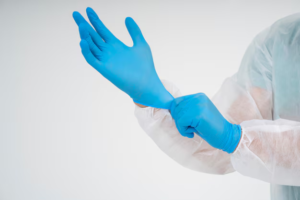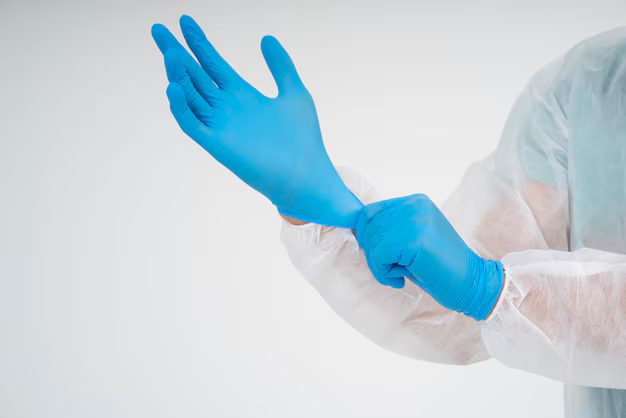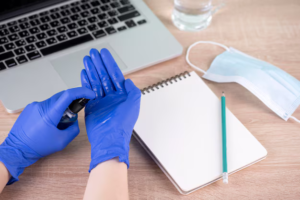

Gloves are really important in healthcare. They help protect both patients and doctors from getting sick. The terms ‘medical gloves’ and ‘examination gloves’ might seem similar. They might sound the same, but they have some key differences.
What Are Medical Gloves?
Medical gloves are examples of personal protective equipment. The are used to protect the wearer and/or the patient. Moreover, they help stop germs from spreading that could potentially harm everyone. Medical gloves are one part of an infection-control strategy.
When To Use Medical Gloves?
Use medical gloves when your hands touch:
- Someone else’s body fluids (such as blood, respiratory secretions, vomit, urine or feces)
- Certain hazardous drugs
- Some potentially contaminated items
What Are Examination Gloves?
Examination gloves are disposable gloves that doctors and other healthcare workers wear to stay safe and protect their patients. They act like a shield for your hands, keeping away harmful things like blood, body fluids, and chemicals. During medical procedures, exams, and lab work, healthcare professionals use examination gloves.
When To Use Examination Gloves?
Medical Examination gloves should be used during:
- Medical examinations
- Handling body fluids
- Injections or vaccines
- Wound care or bandaging
- Handling contaminated objects or equipment
- Performing laboratory work
- In high-risk environments
The Main Differences Between Medical & Examination Gloves?
Doctors and other healthcare professionals use medical and examination gloves. Although their appearance may look the same, there are several key differences between the two:
- Purpose: During sterile surgical environments, doctors and healthcare professionals use medical gloves. This is to make sure that there is high protection against infections. On the other hand, Exam gloves are designed for non-sterile medical procedures and more generalized use.
- Testing Protocols: Medical gloves typically undergo more testing protocols than examination gloves.
- Material Thickness: Medical gloves are generally thicker and less flexible than examination gloves.
How Should Surgical & Examination Gloves Fit?
If gloves are too tight, they can be uncomfortable and make it hard to move your hands. If they’re too loose, they can also be awkward and make it difficult to handle small things. Some gloves have special features that help you grip things better, even when they’re wet or dry.
Find The Best Medical-Grade Examination Gloves At A2 Sustainable
Need Medical-grade examination gloves? A2 Sustainable has you covered! We offer a variety of surgical and non-surgical gloves made from durable, eco-friendly materials. Protect yourself and your patients with our high-quality gloves. Order Now!
About Us
A2 Sustainable Supplies is a minority-owned business focused on keeping life sustainable by providing goods and services to improve the living environment. Our list of medical and non-medical products is extensive and our ability to provide the products at a reasonable and competitive price is key.ttis, pulvinar dapibus leo.



